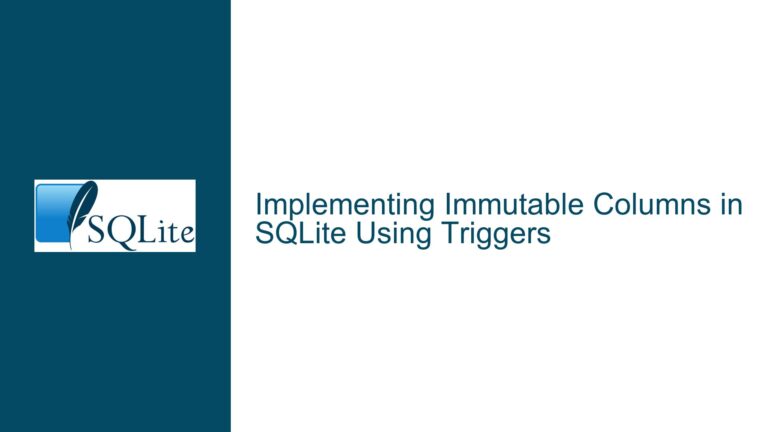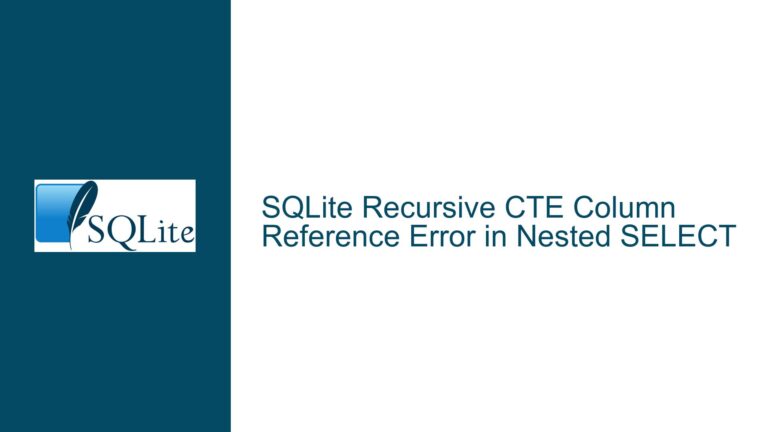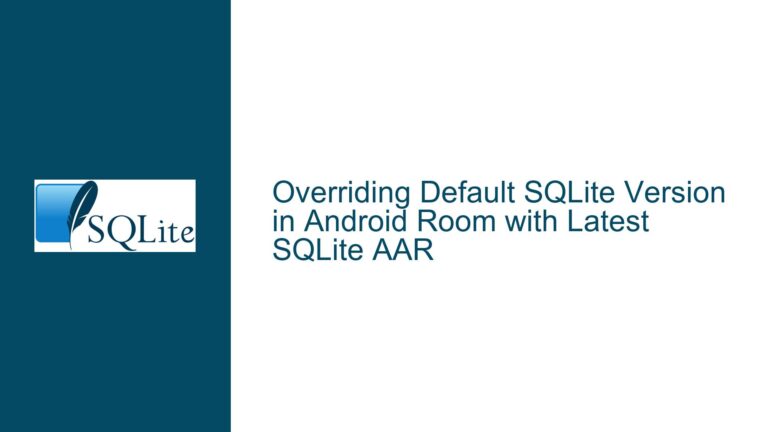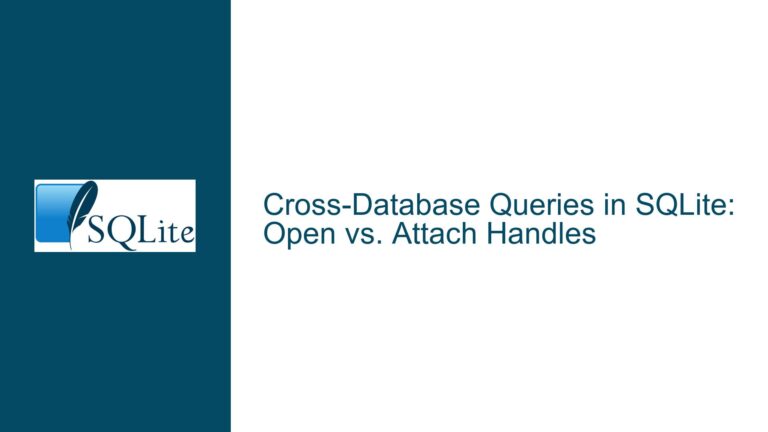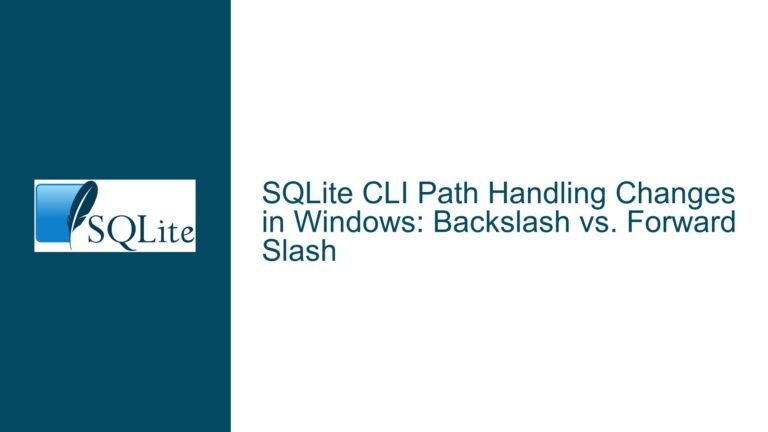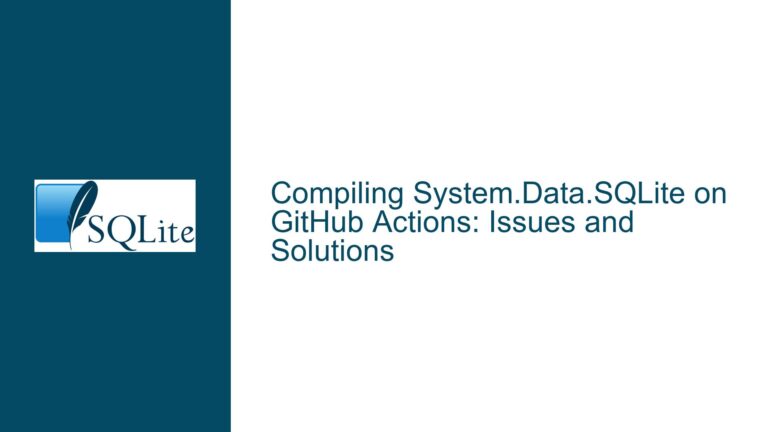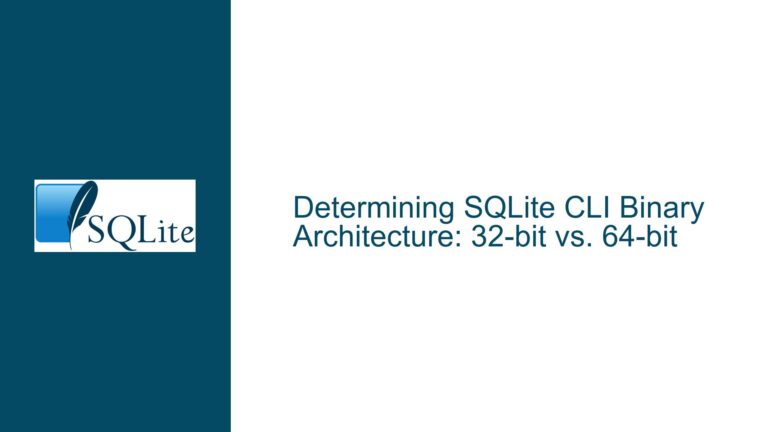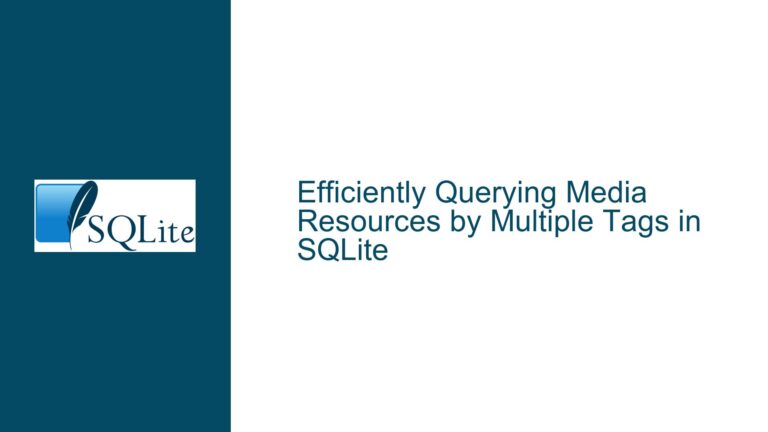Implementing Immutable Columns in SQLite Using Triggers
Immutable Columns: The Need for Write-Once, Read-Many Semantics In database design, there are scenarios where certain columns should be immutable after their initial insertion. These columns, often referred to as "constant" columns, are designed to hold values that should not change once they are set. This requirement is common in use cases such as audit…
